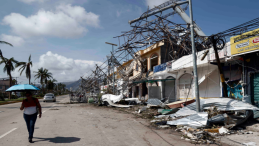Climate change is intensifying the risks faced by vulnerable populations, particularly in the Global South. Climate risk insurance (CRI) can strengthen financial resilience, but access remains limited, especially for individuals, small-scale entrepreneurs and communities.
An intervention that can help address some of these challenges is premium support, which is a financial tool used to make climate risk insurance more accessible to vulnerable populations. By subsidizing part of the insurance premium, premium support reduces the cost for those groups who might otherwise be unable to afford coverage. Therefore, it helps to make insurance more affordable for people who need it most and encourages more people to sign up for coverage. Moreover, it shows how Climate Risk Insurance can protect lives and livelihoods. Here are four critical dimensions for designing and implementing effective premium support schemes for Climate Risk Insurance for individuals, small-scale entrepreneurs and communities:
Clear roles and responsibilities are essential for implementation
Defining the roles of various stakeholders, including governments, the private sector and the development community, is crucial for effective implementation. National governments play a central role in facilitating premium support by signalling their commitment to protecting the most vulnerable and addressing market inefficiencies, while the private sector contributes expertise and resources.
Long-term planning is key to sustainability
Sustainable premium support schemes require more than short-term subsidies. Long-term planning includes defining clear objectives, establishing multi-year subsidy commitments and developing strategies for a gradual phase-out of support, while demonstrating the value of Climate Risk Insurance early on helps build local markets and strengthen demand.
Reaching the most climate-vulnerable requires targeted approaches
To maximize impact, premium support should be directed toward those most in need. This involves the development of targeting strategies that consider a range of criteria, including socioeconomic considerations such as equity, gender and disability. Ensuring access to high-quality data and applying an equity and inclusion lens are critical for avoiding bias and ensuring that no one is left behind.
Transparency builds trust and strengthens results
Transparency in the design, implementation and monitoring of premium support schemes is vital for fostering trust, accountability and learning. This includes clearly communicating objectives, funding sources, eligibility criteria and performance.
More information regarding premium support in Climate Risk Insurance is available in this publication by the Pacific Insurance and Climate Adaptation Programme (PICAP). PICAP aims to improve the financial preparedness and resilience of Pacific Islanders towards climate change and natural hazards through the development and implementation of market-based meso- and microinsurance schemes.




